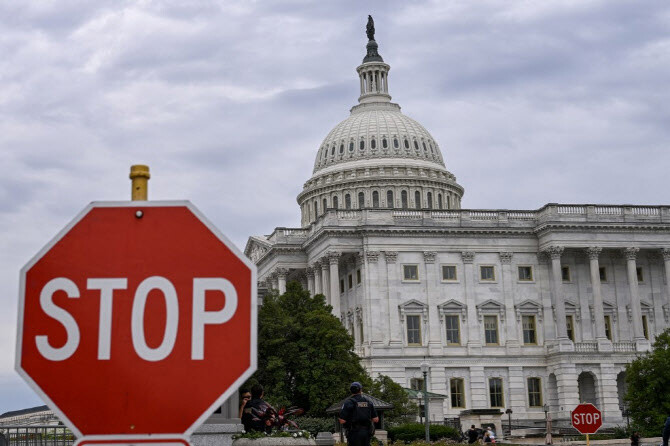
As the U.S. federal government enters a shutdown due to a failure to pass a budget, the Donald Trump administration is engaging in a 'chicken game,' actively utilizing it as a means of pressure against the opposition Democratic Party. The Trump administration is brazenly pressuring the Democrats to concede by seizing the opportunity during the shutdown to freeze large amounts of budget funding for key Democratic districts and preferred projects.
Trump's Policy Priorities Remain 'All Systems Go'
Even during the shutdown, President Trump’s major national priorities are being pushed forward without disruption. The administration has classified key duties like border control, immigration enforcement, and tariff policy—the 'Trump priorities'—as 'essential functions' and has exceptionally maintained their operations.
Strengthened Border and Immigration Enforcement: The Department of Homeland Security is maintaining more staff (up to 95%) than in past shutdowns to continue core functions of border patrol and Immigration and Customs Enforcement (ICE). In particular, ICE's funding was already allocated through the 'One Big Beautiful Law,' limiting the shutdown's impact.
Tariff Policy Forcefully Continued: The Department of Commerce and the Office of the U.S. Trade Representative (USTR) have stated in their shutdown plans that they will continue trade policy. They are maintaining activities that were not previously considered essential, such as issuing import permits for steel and aluminum products, conducting product-specific tariff investigations, and export control activities. USTR, based on the International Emergency Economic Powers Act (IEEPA), is also continuing tariff enforcement. USTR’s personnel retention rate has increased from 40% in 2024 to 60%.
Preference for Fossil Fuel Projects: The Department of the Interior has furloughed thousands of employees but is allowing staff in charge of fossil fuels to continue working on tasks like issuing permits for new oil and gas projects. Marine drilling permits and other "priority conventional energy projects" will continue using carried-over funds, while work on renewable energy projects is suspended.
Executing 'Budget Retaliation' Against Democrats
The Trump administration has clearly signaled its intention to use the shutdown as an opportunity to reduce government functions and implement mass layoffs of federal employees to hurt the Democrats. President Trump publicly stated that during the shutdown, he can do "things that are bad for the Democrats and that they can't reverse."
Targeting Opposition Leaders’ Districts: Russell Vought, Director of the White House Office of Management and Budget (OMB), announced the withholding of approximately $18 billion in federal funding for New York City infrastructure projects. This is seen as a direct pressure tactic against Senate Minority Leader Chuck Schumer and House Minority Leader Hakeem Jeffries, whose districts are in New York State and who are leading negotiations on the interim spending bill linked to the shutdown.
Cuts to Green/Renewable Energy Budgets: Vought also announced that nearly $8 billion in funding for the "newfangled Green Scam" to fuel the Democrats' preferred "Left-wing climate agenda" would be cut. The canceled projects are concentrated in 16 states, including California and New York, that voted for former Vice President Kamala Harris in the last presidential election. This clearly demonstrates President Trump’s strategy of using the shutdown as a political weapon to hurt his opponents and expand his control over the federal budget.
Democratic Leader Schumer criticized President Trump, stating he is "threatening to inflict pain on the country, using the American people as bargaining chips," escalating the confrontation between the two sides. The current shutdown is viewed by many not just as a failure of budget negotiations, but as a political weapon being used by the Trump administration to restructure the government organization and budget according to its policy direction. Concerns about a prolonged shutdown are rising, and future budget negotiations are expected to be even more challenging.
[Copyright (c) Global Economic Times. All Rights Reserved.]




























